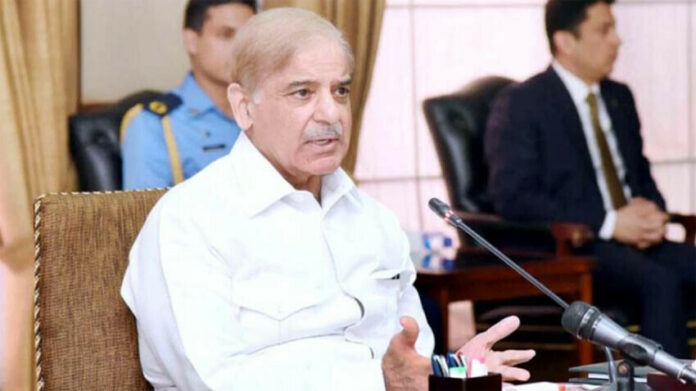ISLAMABAD: Prime Minister Shehbaz Sharif has approved Pakistan’s revised 10-year Indicative Generation Capacity Expansion Plan (IGCEP 2024–2034), projected to save the national economy Rs4,743 billion (approximately USD 17 billion) by excluding nearly 8,000 megawatts of high-cost electricity projects and optimizing project timelines.
The decision was made during a high-level meeting chaired by the Prime Minister in Islamabad, where participants reviewed the government’s strategy to reduce electricity tariffs and implement sustainable reforms in the energy sector. The meeting focused on finalizing the IGCEP, a forward-looking roadmap that emphasizes affordability, local resource utilization, and a transition to a competitive electricity market.
According to the Prime Minister’s Office (PMO), the plan reflects a decisive shift from dependence on imported fuels toward indigenous and renewable sources such as solar, wind, hydropower, and nuclear energy. This transition is expected to not only save Pakistan billions in foreign exchange annually but also bolster energy security amid global market volatility.
Addressing the meeting, Prime Minister Shehbaz Sharif underlined that the recent reduction of approximately Rs7.50 per unit in electricity tariffs marked just the beginning of broader energy reforms. He reaffirmed the government’s commitment to delivering further relief through a transparent, efficiency-driven strategy, free of waste and rent-seeking. He also directed authorities to expedite completion of critical infrastructure projects like the Diamer-Bhasha Dam, warning that delays in energy-related projects would no longer be tolerated.
The PM announced that a free and competitive electricity market would soon be established in Pakistan. “This market will ensure power is supplied on competitive terms, contributing to the sustainability of the energy sector and further reductions in tariffs,” he said.
During the session, senior officials briefed the Prime Minister on the comprehensive re-evaluation of the IGCEP, carried out on his instructions. A dedicated task force revised the plan to better reflect ground realities and the country’s long-term needs.
Under the updated plan, the government has slashed its initial generation capacity target from 14,984 MW to 7,017 MW, while simultaneously prioritizing 7,987 MW worth of projects powered by local and renewable sources. The removal of 7,967 MW in high-cost, non-essential projects is expected to generate savings of Rs1,953 billion ($7 billion), while adjustments in project schedules could yield an additional Rs2,790 billion ($10 billion) in savings—bringing the total estimated savings to Rs4,743 billion.
Minister for Power Sardar Awais Leghari called the reforms historic, stating that had the old policies continued, consumers would have borne a massive financial burden. He emphasized that replacing costly capacity with economically sound alternatives was a critical step toward fiscal discipline and long-term relief for the public.
The revised IGCEP also marks a clear policy shift. For the first time, power planning has been rooted in merit and national interest, free from political influence or special interest considerations. Expensive and underperforming projects will no longer be entertained, and the government will stop entering into power purchase agreements that involve capacity payments or sovereign guarantees.
Minister Leghari confirmed that the outdated single-buyer model and cost-plus tariff system are being phased out. Instead, future energy projects will be awarded through open bidding, with supply agreements based on competitive pricing and consumer demand.
The meeting was attended by key cabinet members including Minister for Economic Affairs Ahad Khan Cheema, Minister for Information Attaullah Tarar, Minister for Petroleum Ali Pervaiz Malik, and senior officials from relevant departments. Prime Minister Shehbaz Sharif lauded the Power Division and Minister Leghari’s team for spearheading what he called a “historic achievement” in ensuring affordability and sustainability in the power sector.
The IGCEP 2024–2034 sets the stage for a transformed power landscape—more reliable, more competitive, and built on transparency. The government expects that the plan will not only stabilize electricity pricing but also attract private sector investment, reduce reliance on costly imports, and establish a resilient framework to meet Pakistan’s growing energy needs.
According to key highlights of the Integrated Generation Capacity Expansion Plan (IGCEP 2024–34), the government has prioritized low-cost and high-quality electricity, selecting new power projects strictly on the principle of least cost. A major policy shift under the new plan includes the removal or rescheduling of certain projects, resulting in national savings of Rs4,743 billion.
Notably, rescheduling project completion dates alone has led to a saving of $10 billion (Rs2,790 billion), while dropping 7,967 MW worth of expensive and unnecessary projects has yielded an additional $7 billion (Rs1,953 billion) in savings.
For the first time, the power generation planning process has been based purely on merit and transparency, with a strong emphasis on national interest over individual or political gains. Expensive and non-essential projects have been cancelled, aligning with a broader strategy to streamline electricity production.
The government has also scaled down expansion targets, initially planning for 14,984 MW of new capacity but now limiting it to 7,017 MW. At the same time, it is promoting electricity generation through domestic resources, adding 7,987 MW from hydropower, solar, wind, and nuclear energy sources.
A critical element of the plan is reducing reliance on imported fuels (such as coal and gas) by shifting towards indigenous and renewable sources. This transition is expected to save billions of dollars annually in foreign exchange.
The IGCEP 2024–34 further supports the development of a sustainable and competitive electricity market, encouraging private sector participation and ensuring future power projects are awarded through competitive bidding.
Importantly, the plan marks a significant policy transformation by ending government guarantees and power purchase commitments for new projects. The elimination of capacity charges will relieve the government of long-term financial liabilities and move towards a more market-driven system.
It is worth mentioning that the IGCEP 2024–34 is a strategic roadmap to ensure affordable, transparent, and sustainable electricity supply in Pakistan. It promises lower costs for consumers, greater economic savings, and a more resilient energy market—paving the way for long-term national benefit.




